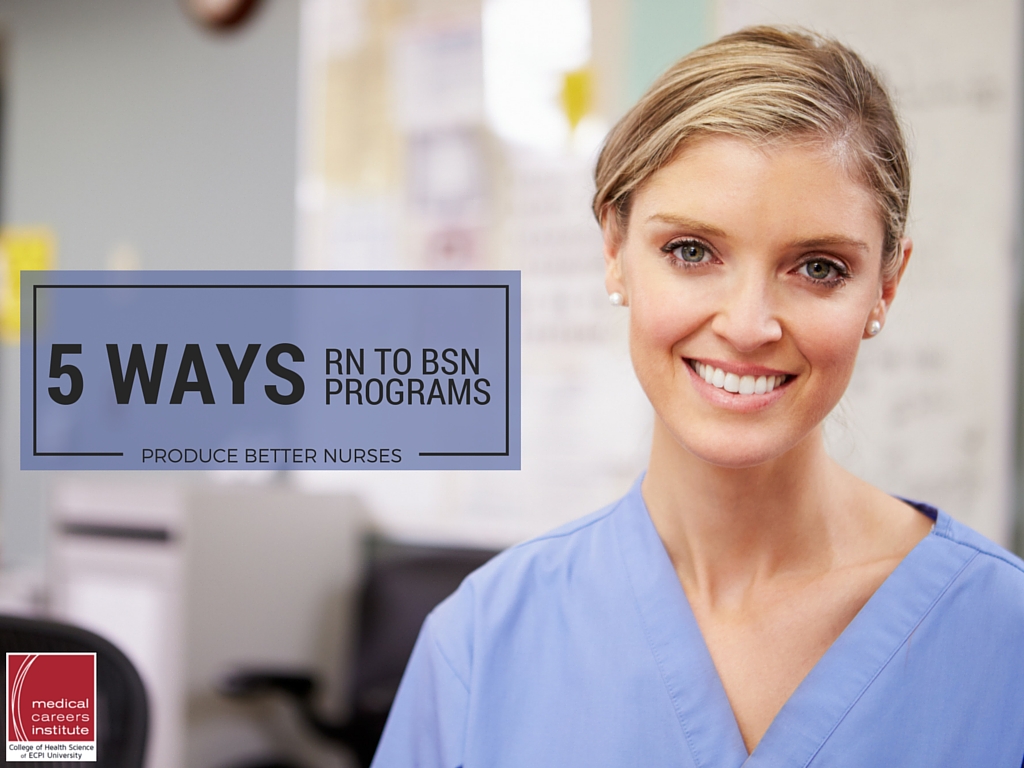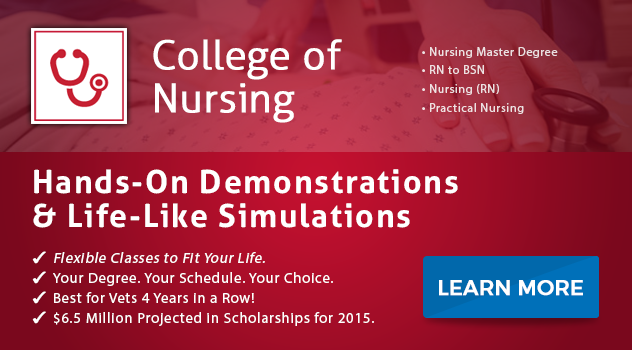
The quality of nurses on the floor at hospitals and other health care provider locations varies depending on the education those nurses receive. While every nurse takes the same licensure exam - NCLEX-RN - those with a Bachelor of Science in Nursing (BSN) have more skills at the entry level. Hospitals seeking Magnet status must employ baccalaureate nurses in supervisory and management roles, so if you plan to move into management or administration, a BSN is a must.
As a matter of fact, by 2020, the Institute of Medicine recommends that 80 percent of Magnet nursing staff hold a BSN, including floor nurses. These changes come on the heels of research that demonstrates the reasons why hospitals are switching to more baccalaureate nursing staff.
Reason #1 -BSN Nurses Reduce Patient Mortality
A study published in Medical Care revealed that an increase of 10 percent BSN staff at hospitals reduced patient mortality by 10.9 percent. A bachelor's degree translates into life-saving skills when looking at nurses. In 2013, a study published in Health Affairs also noted the correlation between more educated nurses and a reduction in patient mortality. That same 10 percent increase reduced patient death by 2.12 deaths per 1,000 patients. Added coursework saves lives in practice. The more you know before you are practicing medicine, the better.
Reason #2 - BSN Nurses Help Reduce Ongoing Mortality
Nursing staff with a higher percentage of baccalaureate nurses don't just reduce patient mortality in the hospital. They also reduce mortality rates after patient discharge. The Journal of Advanced Nursing released a study that showed a 10 percent increase in baccalaureate nursing staff led to nine fewer deaths per 1,000 patients discharged at the 30-day mark. Why? Nurses with a BSN have lower failure to rescue rates and notice potential complications more quickly. The faster you notice, the faster a patient gets treatment.
Reason #3 - Less Trained Nurses Make More Mistakes
You might have heard the phrase, "Doctor's bury their mistakes," but the same is often true for nurses. Errors dispensing medication, updating patient charts or other procedural violations can lead directly to patient deaths. Studies conducted in New York, Texas, Arizona, Colorado, Louisiana, Ohio and Tennessee all showed the same results - most practice-related mistakes come from nurses with less training. Enough mistakes can affect your ability to practice and may even lead to losing your license, not to mention the people who might suffer as a result of those mistakes.
Reason #4 - RNs with a BSN Demonstrate Stronger Leadership Skills
Numerous studies of nurses in the workforce have shown that nurses with a BSN not only improve patient outcomes, they also demonstrate better critical thinking skills, leadership abilities, and communication. The Journal of Nursing Administration published a survey in which 72 percent of nursing directors recognized improvements in these areas from nurses with a BSN. RN to BSN graduates also show these competency enhancements with improved diagnoses and intervention evaluation.
Reason #5 - RN Might Equal Entry-level Only
In response to all of the documentation showing that a BSN leads to better patient outcomes, more and more employers require this degree for advancement. The VA requires any nurse to obtain a BSN for promotion past entry level. As the largest employer for RNs in America, this change directly impacts employability. All branches of the military, U.S.. Army, Navy and Air Force, require a BSN for active duty RNs. The same goes for those seeking employment with the Public Health Service. While currently Magnet hospitals employ 59 percent baccalaureate nurses, and other healthcare providers average 34 percent, the National Advisory Council on Nurse Education and Practice is calling for two-thirds of all nurses to hold a baccalaureate or higher degree.
Future Nurse@ECPI... http://t.co/zVMBDgHoAW
— Latosha Lea (@lealatosha) January 26, 2015
Save Lives and Open Advancement Doors with the RN to BSN
Greater nursing education leads to fewer hospital deaths and better quality of care. A BSN also leads to more employment opportunity, with the Bureau of Labor Statistics predicting 19 percent job growth for nursing between 2012 and 2022. You could transition from an associate degree to a bachelor's in as little as 45 weeks through our accelerated RN to BSN program. With online classes, you could work as a nurse gaining practical experience as you put in the classroom time to improve your skills. Contact ECPI University today to start earning your baccalaureate degree. It could be the Best Decision You Ever Make!
DISCLAIMER: ECPI University makes no claim, warranty or guarantee as to actual employability or earning potential to current, past or future students or graduates of any educational program we offer. The ECPI University website is published for informational purposes only. Every effort is made to ensure the accuracy of information contained on the ECPI.edu domain; however, no warranty of accuracy is made. No contractual rights, either expressed or implied, are created by its content.
For more information about ECPI University or any of our programs click here: http://www.ecpi.edu/ or http://ow.ly/Ca1ya.


